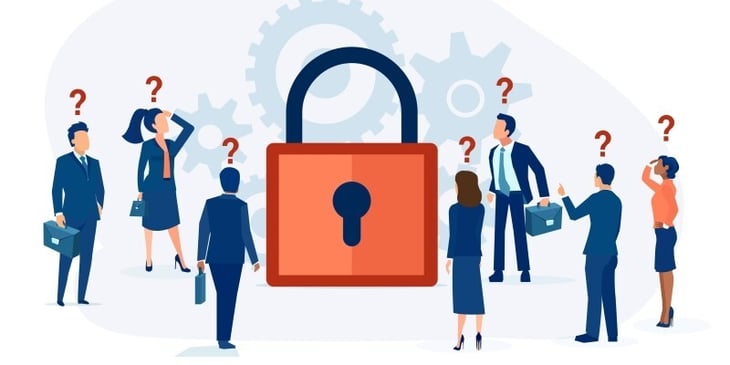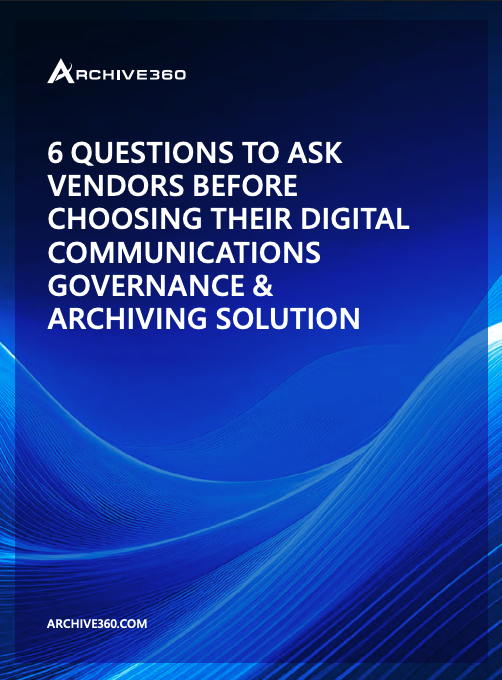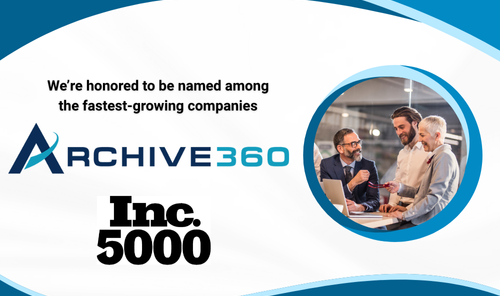
Announcing Free Data, Doesn’t Mean Data Freedom
- By:
- George T. Tziahanas |
- August 7, 2025 |
- minute read
In the earliest days of enterprise information archiving, and what we now call digital communications archiving and governance, the ability to provide a platform to meet emerging regulatory retention requirements at any scale was a challenge. Much of the maturation of the market occurred in the long shadows of the credit crisis, which drove consolidation in the financial services sector, and significant regulatory scrutiny. Getting data into the platforms and merely meeting the basic requirements was a challenge…but that was over 10-years ago.
There was consensus among the “leading” archiving vendors at that time that proprietary, private cloud and on-prem solutions were the only approaches for archiving clients. Then in 2016, a small company that had previously focused on data migration from these legacy archives, with their partner (an early hyperscaler called Microsoft) saw an opportunity to leverage emerging cloud technologies to build something they called an “Open-Archive.”
Archive360’s founders Bob Desteno (now Executive Chairman) and Tibi Popp (CTO) realized leveraging Microsoft’s cloud-infrastructure (Azure) didn’t just put them on a level technical field with the large archive vendors at that time, but allowed them to deliver an entirely new model. Microsoft was innovating and investing in cloud infrastructure at rate and at scales unimaginable by any legacy archive vendors. This combination allowed them to develop comparable capabilities (or better), and match scale, while giving clients something unique-ownership and control of their data.

eBook
6 Questions to Ask Vendors Before Choosing Their Digital Communications Governance & Archiving Solution
Discover essential questions to ask vendors for effective digital communications governance and archiving. Ensure compliance, enhance security, and maintain control over your data.
Building on cloud-native infrastructure meant that Archive360 could deploy clients of various sizes and do so in dedicated environments. This model allowed deploying into Azure tenants owned by customers, or dedicated tenants under its CSP program in SaaS configurations. In either case, it meant that the customer “owned” the data, and was either in, or could take, possession and control. A simple concept they called "Your Data, Your Control". No data exit fees, no “hostage fees,” and the promise the data might be available for other uses as technologies evolved.
Fast forward to 2025, and the decision to build a cloud-native archive extends benefit well beyond data ownership and control. Increasing cloud adoption by nearly all enterprises (and more government agencies), almost all new and innovative technologies including AI and analytics platforms, are cloud native as well. A decision made almost ten years ago, provides new opportunities for Archive360 and its clients, to more easily integrate with enterprise data ecosystems, serve as a trusted source to AI, and leverage cloud-based AI capabilities.
Recently, we have seen legacy archiving companies announce the end to “holding customer data hostage.” But an intent to free the data, doesn’t mean data freedom. Has reality changed? Do customers now have some radically new ability to take possession and control of their data without significant migration efforts? If so, how quickly can customers receive their data? Have contracts changed so that data exit and export fees are now all moved to zero? And is the data in an architecture that remains difficult to integrate with enterprise data and AI platforms?
It's ironic to see some “leaders” in the space join the party that our founders started in 2016. We will be the first to welcome their customers now that their data is no longer “held hostage” and make a very easy transition to a modern archiving platform. But perhaps most importantly, you would be joining a company that has been dedicated to data freedom for the last decade, and did not just find it convenient to join the revolution.
George Tziahanas, AGC and VP of Compliance at Archive360 has extensive experience working with clients with complex compliance and data risk related challenges. He has worked with many large financial services firms to design and deploy petabyte scale complaint books and records systems, supervision and surveillance, and eDiscovery solutions. George also has significant depth developing strategies and roadmaps addressing compliance and data governance requirements. George has always worked with emerging and advancing technologies; introducing them to address real-world problems. He has worked extensively with AI/ML driven analytics across legal and regulatory use cases, and helps clients adopt these new solutions. George has worked across verticals, with a primary focus on highly regulated enterprises. George holds an M.S. in Molecular Systematics, and a J.D. from DePaul University. He is licensed to practice law in the State of Illinois, and the U.S. District Court for the Norther District of Illinois.


